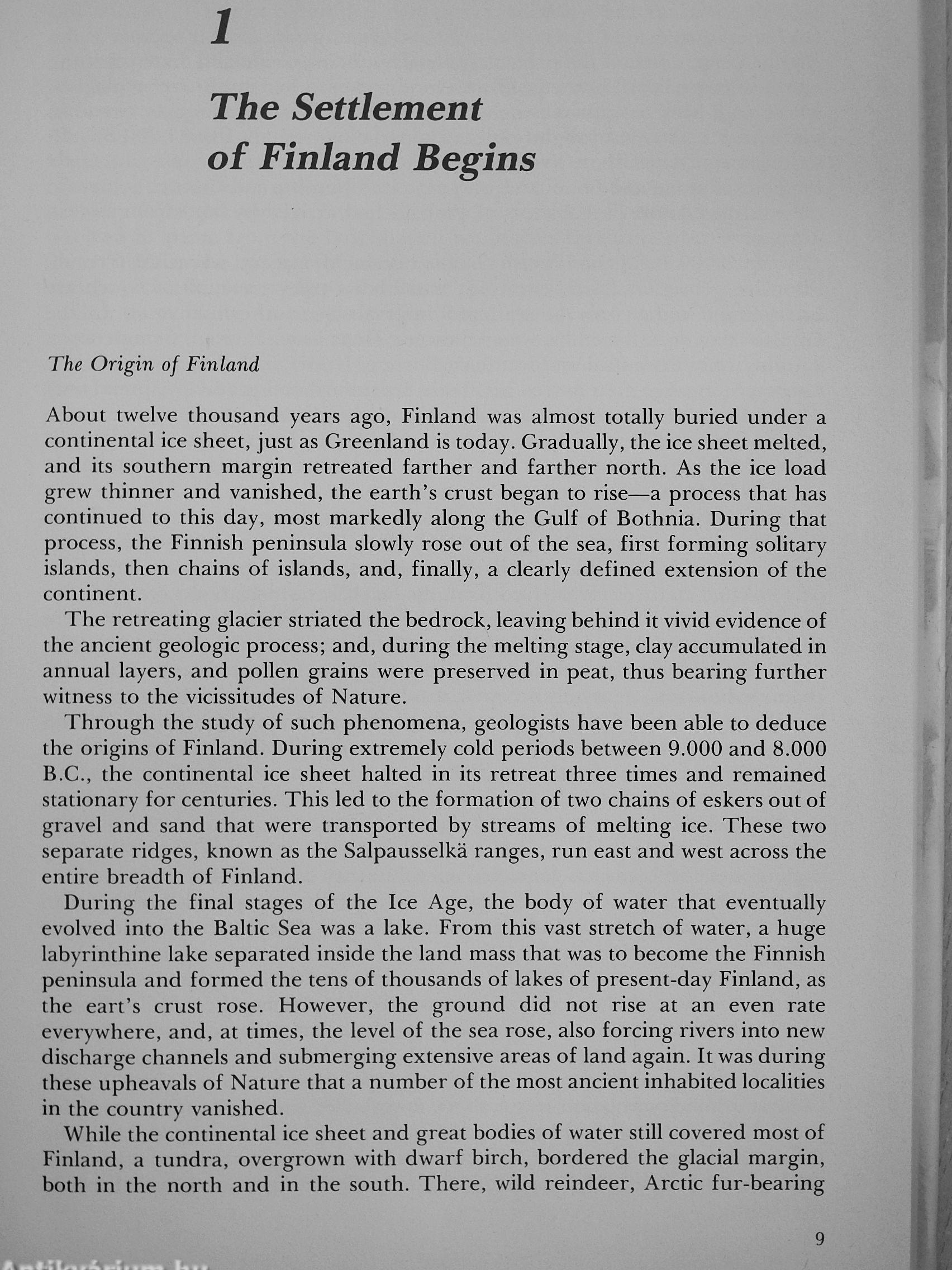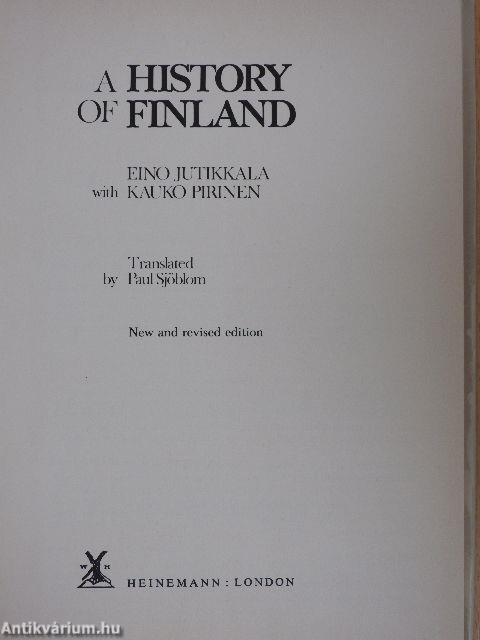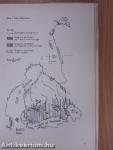1.067.053
kiadvánnyal nyújtjuk Magyarország legnagyobb antikvár könyv-kínálatát

VISSZA
A TETEJÉRE
JAVASLATOKÉszre-
vételek
A History of Finland
| Kiadó: | Heinemann |
|---|---|
| Kiadás helye: | London |
| Kiadás éve: | |
| Kötés típusa: | Fűzött kemény papírkötés |
| Oldalszám: | 253 oldal |
| Sorozatcím: | |
| Kötetszám: | |
| Nyelv: | Angol |
| Méret: | 24 cm x 17 cm |
| ISBN: | 434-37760-0 |
| Megjegyzés: | Fekete-fehér térképekkel. Új és átdolgozott kiadás. |
naponta értesítjük a beérkező friss
kiadványokról
naponta értesítjük a beérkező friss
kiadványokról
Előszó
TovábbFülszöveg
a
HISTORY ofFINLAND
New and revised Edition
EinoJutikkala with KaukoPirinen
In A.D. 100, the Roman historian Tacitus described a wild and primitive people called Fenni - the first mention of the Finnish people on record. Since that time, Finland has had one of the most bloody and strife-torn histories in Europe. Preyed upon by aggressive neighbors, devastated by battles fought on Its soil, and buffeted by the erratic rule of its various conquerors, it has tenaciously maintained its vital national culture. Originally published in 1962, A HISTORY OF FINLAND, the first general history of Finland in English, surveys this courageous nation from prehistoric times, through the epoch of the Viking heroes, to modern times. This nevii and revised edition, updated throughout, includes a brief description of developments since 1947.
From A.D. 800 until the beginning of this century, Finland had to fight constantly to retain its independence from the incursions of Sweden, on the one hand,... Tovább
Fülszöveg
a
HISTORY ofFINLAND
New and revised Edition
EinoJutikkala with KaukoPirinen
In A.D. 100, the Roman historian Tacitus described a wild and primitive people called Fenni - the first mention of the Finnish people on record. Since that time, Finland has had one of the most bloody and strife-torn histories in Europe. Preyed upon by aggressive neighbors, devastated by battles fought on Its soil, and buffeted by the erratic rule of its various conquerors, it has tenaciously maintained its vital national culture. Originally published in 1962, A HISTORY OF FINLAND, the first general history of Finland in English, surveys this courageous nation from prehistoric times, through the epoch of the Viking heroes, to modern times. This nevii and revised edition, updated throughout, includes a brief description of developments since 1947.
From A.D. 800 until the beginning of this century, Finland had to fight constantly to retain its independence from the incursions of Sweden, on the one hand, and Russia, on the other. A sparsely populated country, rich in natural resources but lacking strong political institutions, Finland was a tempting prize for aggressive, politically more developed powers. Sweden, which sent crusades into Finland, spread Swedish influence along with Christianity. Swedish culture and language were adopted by the educated class and, as a part of Sweden, Finland participated in the vicissitudes of the Thirty Years' War and the upheavals of Sweden's dynastic decline. In 1600, a new threat arose in the east as Russia embarked on an expansionist course, and for the next two centuries war between the two countries was almost uninterrupted. After Finland finally achieved autonomy, in the early 1800's, it continued to be plagued by civil discord and language conflicts - the consequences of centuries of foreign occupation. Again it was defenseless before Russian exploitation. Today Finland's unity is once more restored.
This volume, in tracing the long and intricate pattern of Finland's history - its relations with Sweden and Russia, the growth of Finnish nationalism, and the development of a distinctively Finnish culture - offers a comprehensive perspective on one of the little-known countries of Europe.
Eino Jutikkala, Academician, retired Professor of History at Helsinki University, has written many books on the agrarian and urban history of Finland. Kauko Pirinen is a specialist in medieval history and Professor" of Church History at Helsinki University. Vissza














